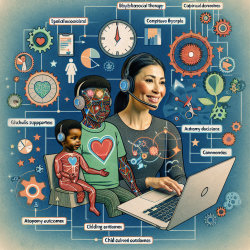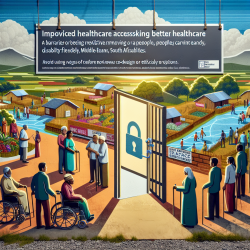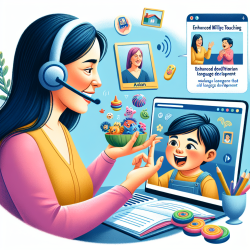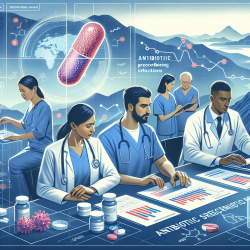Enhancing Online Therapy: Applying Biopsychosocial Beliefs and Autonomy Support

The application of the biopsychosocial (BPS) model and autonomy support in the field of dental hygiene has provided profound insights that can be translated into the realm of online therapy services, particularly in speech language pathology. This blog explores the findings from the research article titled "Dental hygienists’ biopsychosocial beliefs and giving autonomy support in treatment of patients: A self-determination theory perspective" and discusses how these findings can be utilized to enhance the outcomes of online therapy services provided by TinyEYE.
Understanding the Research
The research by Halvari et al. (2022) focuses on the interplay between dental hygienists' biopsychosocial beliefs and their autonomy-supportive behaviors in patient treatment. The study employed a prospective cohort design involving 299 dental hygienists who completed an online survey at baseline and after 18 months. The key findings include:
- Profiles of perceived autonomy-supportive managerial styles and dental hygienists' autonomy orientations were positively related to BPS beliefs and autonomy-supportive behaviors.
- BPS beliefs in patient treatment were positively associated with autonomy-supportive behavior towards patients.
Translating Findings to Online Therapy
The implications of these findings are significant for practitioners in online therapy services. Here are actionable steps to integrate these insights:
1. Foster Autonomy-Supportive Environments
Creating an autonomy-supportive environment for both therapists and clients can lead to better therapeutic outcomes. This involves:
- Encouraging self-initiation and choice in therapy activities.
- Providing rationale and relevance for tasks and goals.
- Acknowledging the client's feelings and perspectives.
2. Embrace the Biopsychosocial Model
The BPS model emphasizes the integration of biological, psychological, and social factors in understanding and treating disorders. Practitioners should:
- Assess and address not only the speech and language issues but also the emotional and social contexts of the child.
- Incorporate family and social dynamics into the therapy plan.
- Use data-driven assessments to tailor individualized therapy plans.
3. Implement Regular Feedback Mechanisms
Regular feedback from clients and their families can help refine therapy approaches. This can be achieved by:
- Conducting periodic surveys to gather client feedback on therapy sessions.
- Using feedback to adjust and improve therapy techniques and strategies.
- Ensuring open communication channels between therapists and clients.
Encouraging Further Research
The study by Halvari et al. highlights the importance of autonomy support and BPS beliefs in enhancing patient outcomes. Practitioners are encouraged to delve deeper into these concepts by conducting further research within their practice settings. This can include:
- Exploring the impact of autonomy-supportive behaviors on client engagement and progress in online therapy.
- Investigating how BPS-oriented therapy plans influence the overall well-being of clients.
- Collaborating with academic institutions to publish findings and contribute to the broader field of speech language pathology.
Conclusion
By integrating the principles of autonomy support and the BPS model, online therapy services can significantly enhance the outcomes for children receiving speech language pathology services. Data-driven decisions and continuous feedback loops will ensure that therapy remains client-centered and effective.To read the original research paper, please follow this link:
Dental hygienists’ biopsychosocial beliefs and giving autonomy support in treatment of patients: A self-determination theory perspective.
Citation: Halvari, A. E. M., Ivarsson, A., Halvari, H., Dahl, K. E., Olafsen, A. H., Solstad, B. E., Deci, E. L., & Williams, G. (2022). Dental hygienists’ biopsychosocial beliefs and giving autonomy support in treatment of patients: A self-determination theory perspective. International Journal of Dental Hygiene, 20(2), 193-202. https://doi.org/10.1111/idh.12584










